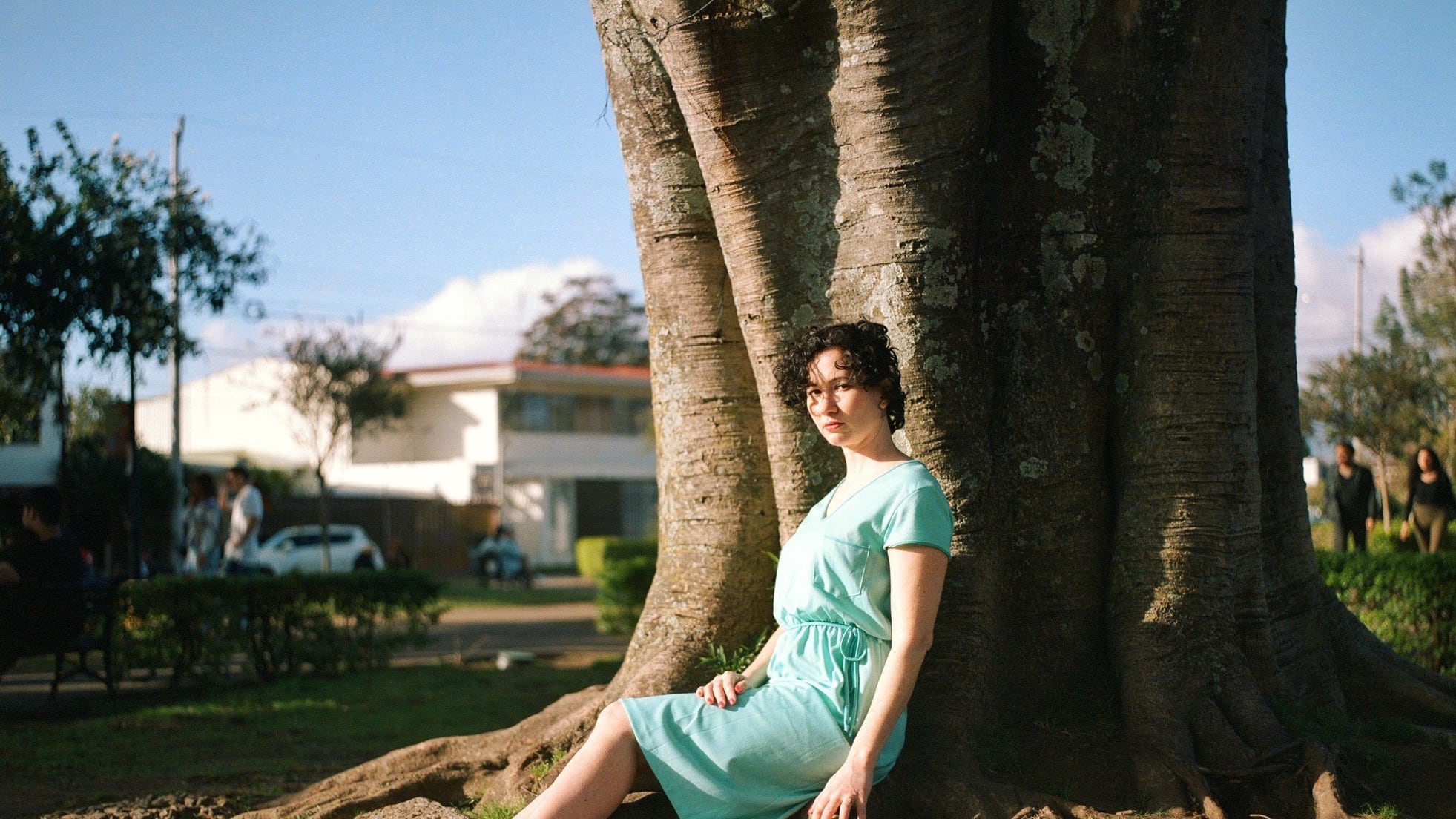Canyon, Portland pianist and composer Mary Sutton’s new album as Saloli, is so vast and majestic-sounding that the fact that it was made with a single synthesizer from the ‘80s might take some time to process.
It’s not the only constraint Sutton placed on herself while recording. Every track was recorded live in the studio, and she chose to use only a single delay pedal for effects.
“I thought, what’s a way I can express the effect the delay is having?” Sutton says. “And I just thought, where would an echo be? In a canyon.”
Slowly but surely, Sutton built a story around these eight pieces: a day in the life of a bear in the Great Smoky Mountains. The cover of the record, which was released earlier this month through the long-running indie label Kranky, features artwork of an American black bear by her father, Jerry Sutton, a Cherokee painter and flutemaker.
“As my dad tells it, he was motivated to make the painting in the first place because the bear in Cherokee teachings is the human’s closest relative,” says Sutton. “I read some stories about people who would go and live amongst the bears, or they would turn into bears and live the bear’s life. The bear’s life is sort of the easy life: plentiful food, they can eat fish, they can eat berries.”
The Great Smoky Mountains are significant to Sutton for another reason: The region was the Cherokee homeland before the forced displacement of nearly 60,000 people in the mid-19th century. Many of those who survived what has come to be known as the “Trail of Tears” ended up in modern-day Oklahoma.
Sutton describes a bike ride from the Smoky Mountains to Oklahoma, which many young Cherokees attempt: “It’s pretty intense, because the people who are based in Oklahoma see how beautiful the homeland is.”
Sutton’s parents met in the Cherokee stronghold of Tahlequah in eastern Oklahoma, but Sutton herself was born in Dallas. Interested in piano since second grade, Sutton attended the New England Conservatory of Music in Boston, hoping to become a piano virtuoso. Yet she quickly soured on the conventions and culture surrounding classical music, particularly after a depressing gig working as an usher at the respected Boston Symphony.
“I thought the people who went there would be the most into it, and that wasn’t the case,” she says. “It was just a place people would come with their minks and their diamonds just to socialize and then complain about the music to me.”
Sutton began looking beyond the classical world for musical inspiration. After moving to Portland in 2007, she got a gig playing New Age synth at Common Ground Wellness Cooperative, where she began exploring a more spare and ambient sound than the technical style she’d pursued as a classical pianist.
“My expectation of myself was to play piano virtuosically, but nobody expected that of me but me,” she says. “I didn’t really feel like I could just play a simple or sparse melody and have it feel like I had done something.”
Stripping her sound back opened up the creative floodgates for Sutton. She’s released four albums as Saloli since 2018. Two—2021′s The Island and last year’s Ghosts—were recorded on solo piano.
Canyon, like Sutton’s 2018 debut, The Deep End, was recorded entirely with a Sequential Circuits Multi-Trak synth. A friend recommended this particular synth to Sutton based on its pianolike qualities.
“It only has one knob, meaning in order to change any parameters, you use the same knob for every parameter,” she says. “It was good for me because that’s kind of how I’m used to playing anyways. You’re not changing the sound as you play [on piano].”
Sutton’s way of working may seem austere to an outsider: using only one instrument per album, recording live and solo, largely eschewing the worlds of soundscaping and effects available through synths and their accompanying pedals. Yet everything Sutton does ties back to her practice as a pianist.
“It’s not like I’m deciding to limit myself that way,” she says. “It’s just how I do it.”
SEE IT: Saloli performs an album release show, with support from Patricia Wolf and Lou Trove, at Holocene, 1001 SE Morrison St., 503-239-7639, holocene.org. 5 pm Saturday, July 22. $12. 21+.
